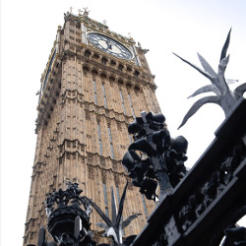A Commons committee has announced it will take evidence tomorrow from audit firms which had contact with collapsed charity Kids Company, and has published a raft of written evidence from people involved with the charity.
William Richardson from PwC, Alastair Duke from PKF Littlejohn and Nick Brooks from Kingston Smith will give evidence to MPs on the Public Administration and Constitutional Affairs select committee tomorrow morning.
Sue Berelowitz, former deputy Children’s Commissioner, will also give evidence.
Earlier this month Camila Batmanghelidjh, founder of Kids Company and Alan Yentob, its chair, answered the committee’s questions.
Written evidence from former staff
Former Kids Company staff have claimed in written evidence released last week that the sudden closure of the charity made it difficult to organise the transfer of client information.
The inquiry has recently published a number of pieces of written evidence from former employees of the charity, including Laurence Guinness, former director of communication, campaigns and research, wishing to address points raised during the questioning of Batmanghelidjh and Yentob at the earlier hearing.
Guinness told MPs that of the 17 staff who stayed on for ten days to facilitate the closure of the charity four were working on the handover of “tens of thousands”.
“It became apparent within days of the closure that this plan, despite thorough preparation, was unrealistic and that due to unforeseen factors, many more staff would be needed to complete referral forms,” he said. And 20 former staff volunteered to help.
He added that following the closure staff mobile phones were cut off making it “almost impossible for keyworkers to gather details and complete all the referrals that were necessary”.
In separate written evidence a former safeguarding manager the charity’s Arches II centre who worked on the handover of cases said that the “majority of these referral forms related to families rather than to single children” and estimates that 3,000 to 4,000 individuals have been passed on to local authorities.
They said that during meetings with the local authority both parties accepted that “data protection and consent issues” prevented all case files from being handed over.
The evidence also refers to alleged shredding of paperwork following the closure, to say that “no client files nor any original paperwork was shredded”.
“However we certainly did shred copies of any paperwork that had already been uploaded to Aurora [the charity’s database], staff personal notes and other non-original but client identifying data. This was a decision I took for this centre within my role on the senior management team and inmy view was required to ensure we were compliant with our duties under the Data Protection Act.”
A number of former employees have also written to the inquiry setting out the ways that they were supporting young people.
The inquiry also received written submissions from Genevieve Maitland-Hudson, a former employee who has written extensivley about her time at the charity, and Joan Woolard, who lodged a complaint with Charity Commission after she donated the proceeds of the sale of her house to the charity, but came to feel that she had been misled about where the money had gone.









